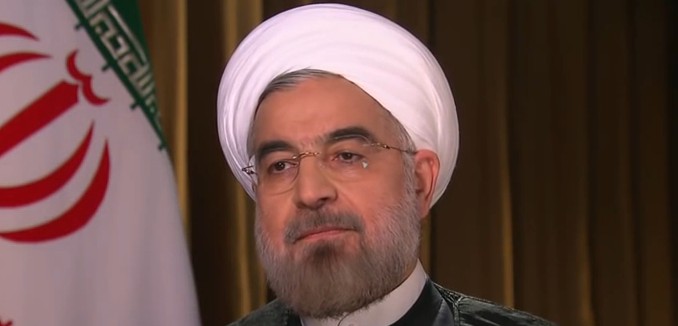As the United States and Iran coordinated the implementation of the nuclear deal and an agreement to free American hostages held by Iran, hardliners in the Tehran regime took the opportunity to consolidate their power, Eli Lake of Bloomberg View wrote on Wednesday.
Since last Tuesday, Iran detained 10 American sailors at gunpoint, attempted to arrest the wife and mother of one of the American hostages being released, and disqualified nearly all of the so-called reformist candidates that sought to run in next month’s parliamentary elections.
Lake observed that these events came as a blow to the administration of President Barack Obama, which told Democratic lawmakers that lifting nuclear-related sanctions against Iran would strengthen the regime’s moderates at the expense of hardliners, and said that February’s elections will be an opportunity “to give the nuclear deal popular legitimacy inside Iran.”
Amin Tarzi, the director of Middle East studies at Marine Corps University, told Lake that the “vast majority” of candidates associated with Iranian President Hassan Rouhani, who is often characterized as a relative moderate, have been disqualified.
“Because of Khamenei’s health, the factions in Iran that are loyal to the Revolutionary Guard do not want to take the chance that the next supreme leader will not be one of them,” Tarzi explained. “They don’t want Rouhani and his faction to benefit from the fruits of the nuclear deal. The gloves are off now.”
Karim Sadjadpour, a senior associate at the Carnegie Endowment for International Peace, added that efforts to expedite the implementation of the deal in order help Rouhani and other perceived moderates in the election were made in vain. “What people repeatedly fail to understand is Iranian elections are heavily rigged in advance. The Venn diagram of politicians who are genuinely popular and permitted by the Guardian Council to run is extremely small.”
Suzanne Maloney, the deputy director of the foreign policy program at the Brookings Institution, told Lake that even if the reformers or moderates won, recent history suggests that they wouldn’t be able to enact much change. She cited the Iranian elections in 2000, when reformers allied with then-President Mohammad Khatami made gains in Iran’s parliament, yet were unable to translate them into any sort of change. Notably, at the time, Rouhani was regarded as a hardliner who opposed Khatami’s reforms.
Lake concluded by quoting Obama’s comments to young Iranians on Sunday, when the president said, “We have a rare chance to pursue a new path — a different, better future that delivers progress for both our peoples and the wider world.” While hopeful, Lake indicated that these sentiments were undermined by recent events and the unchanged, undemocratic nature of Iranian elections, which will not allow Iranians to pursue any “different, better future.”
[Photo: CNN / YouTube ]




